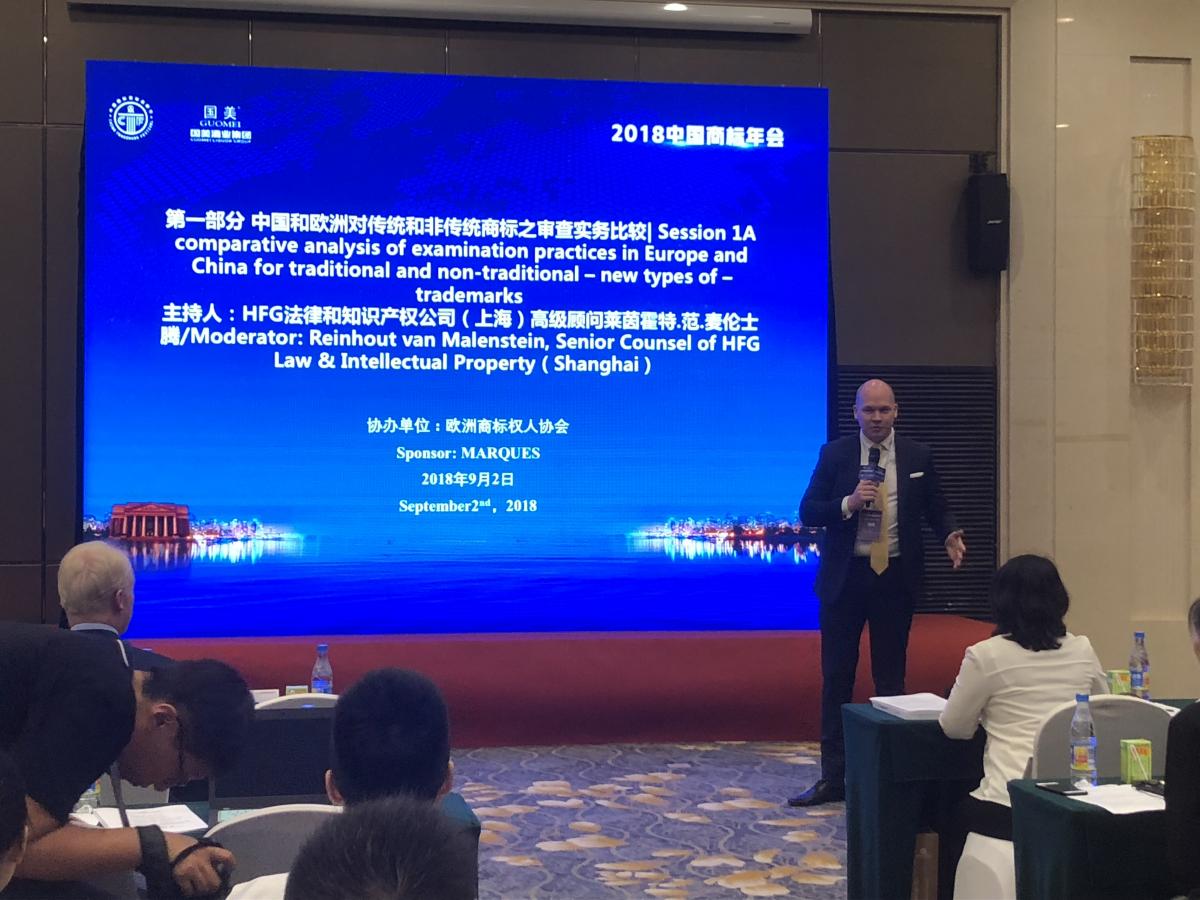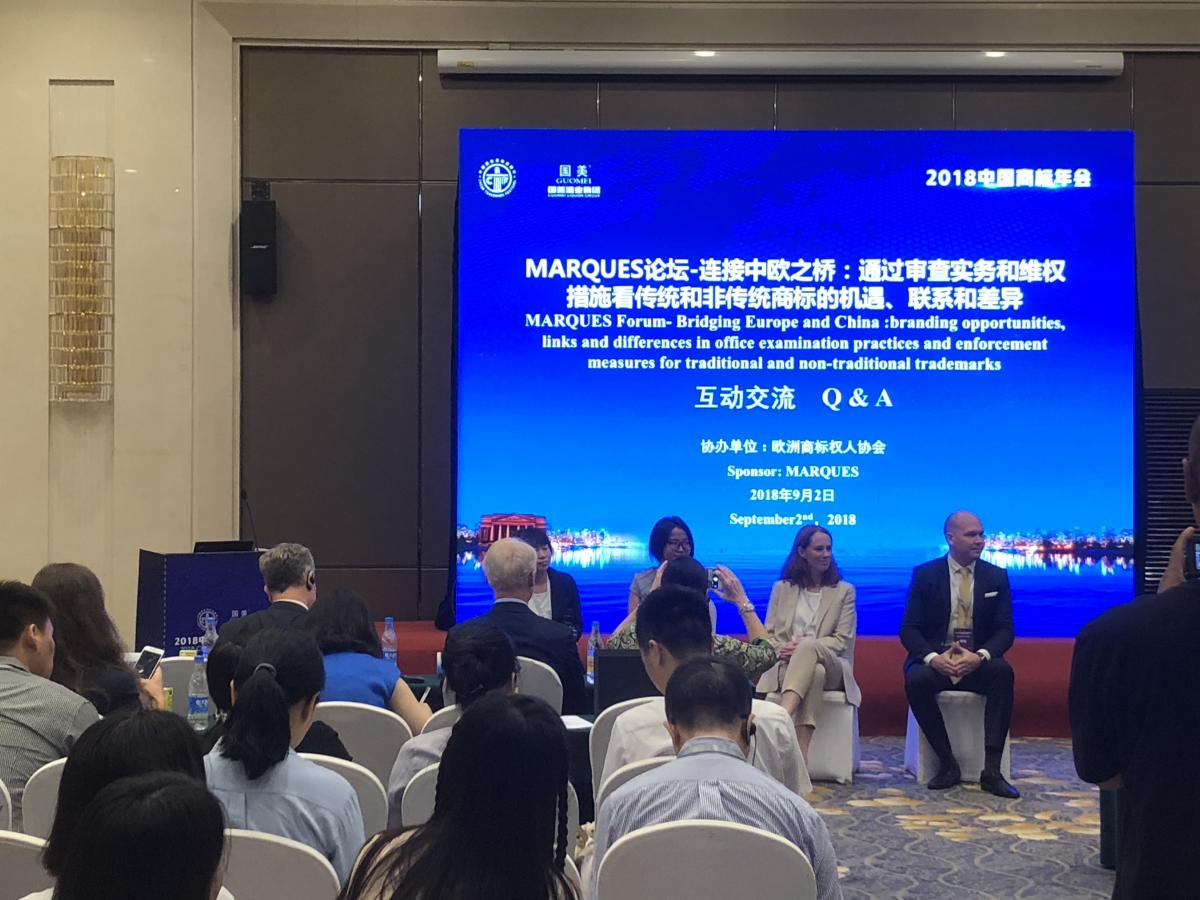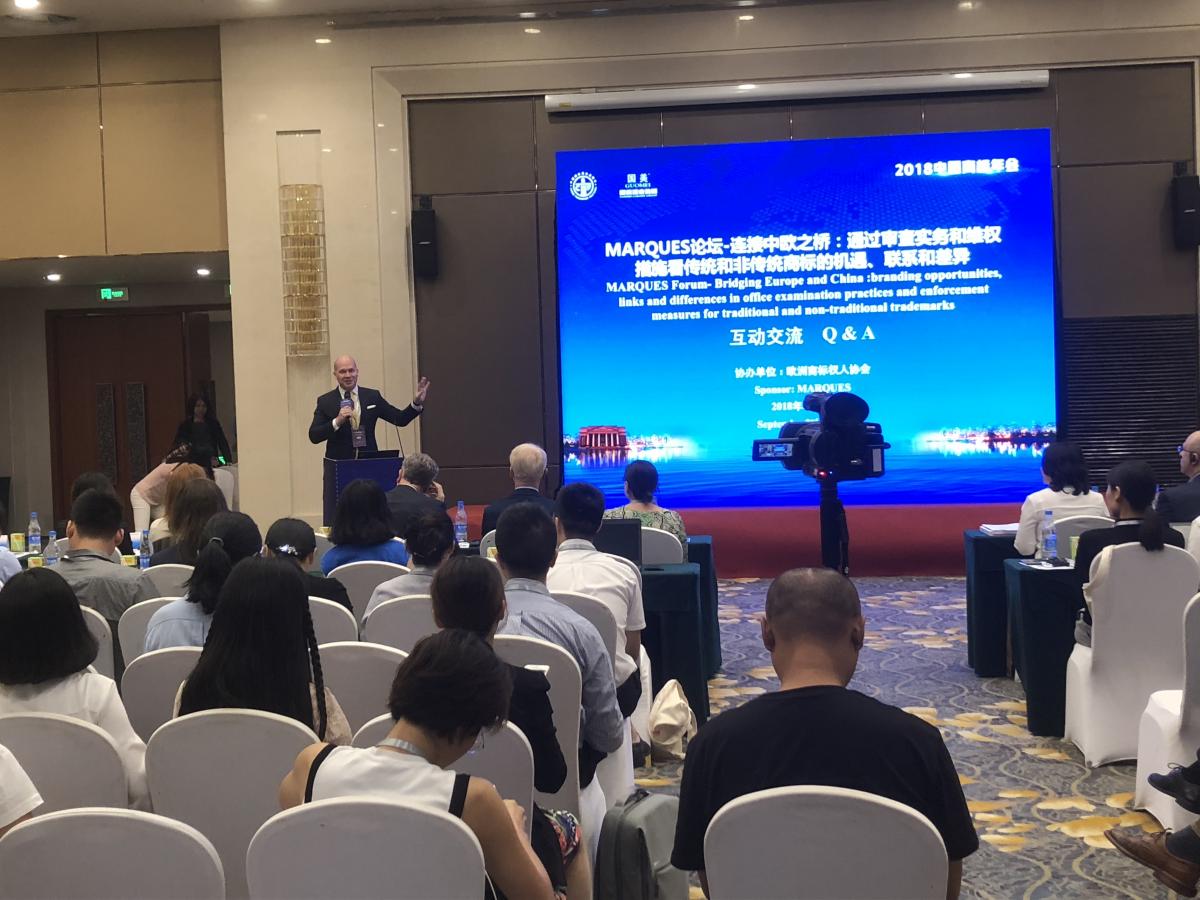Senior Counsel Reinout van Malenstein spoke at China Trademark Festival 2018 in Tangshan
Senior Counsel Reinout van Malenstein spoke at China Trademark Festival 2018 in Tangshan

At the China Trademark Annual Meeting 2018, China Trademark Festival 2018 in Tangshan, Reinout van Malenstein, Senior Counsel at HFG Law & Intellectual Property, moderated the MARQUES Sub-Forum. MARQUES is the Association of European Trade Mark Owners, which represents trade mark owners' interest before the relevant EU and other international bodies in all relevant areas.
The Marques Sub-Forum was titled: Bridging Europe and China: branding opportunities, links and differences in office examination practices and enforcement measures for traditional and non-traditional trademarks. Reinout van Malenstein emphasized the different trademark examination practices between the European Union and China, and mentioned the differences between Chinese and the European languages as one of the main differences. For example, Chinese trademarks in the EU can only be registered as figurative marks, whereas in China they can be registered as word marks. Also, Reinout emphasized the need for European companies to create and register a Chinese language trademark in order to be protected on the Chinese market, as otherwise the market will create a name for that company. In case someone registers that name the market created, it will cost a lot of money buying it back, as generally the first to file principle applies to China.
Other speakers at the sub-forum included: Dr. Gregor Versondert, Global Legal Counsel, Shave Care, Proctor & Gamble International Operations, Switzerland and Chair of MARQUES Council, Mr. MA Fu, President of the China Trademark Association, and Mr. Guenther Marten, Minister Counselor and EUIPO IP Attaché at the European Union Embassy in Beijing, Karin Becks, trademark attorney at Arnold & Siedsma in the Netherlands. Betty Wang, Deputy director of IP Department at Tencent Technology (Shenzhen) Co. Ltd. , and Judy Wang, Creative Director at Labbrand.
The differences between the possibilities of registering non-traditional marks as colour marks, position marks, three-dimensional marks, sound marks, multimedia marks, motion marks hologram marks and pattern marks were discussed extensively. From both European and Chinese perspective, both sides of practitioners hope there will be more similarity in examination procedures between China and the European Union in the future, which will make the trademark environment more similar around the world.
|  |




